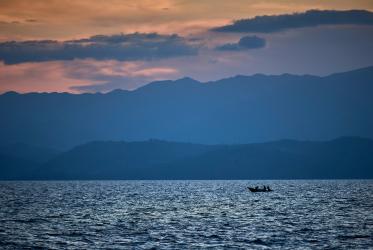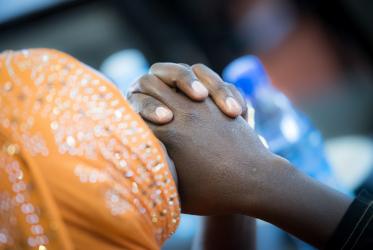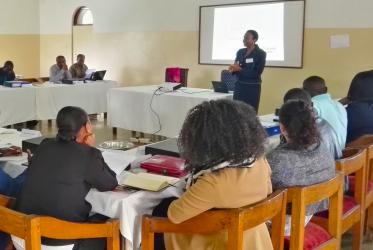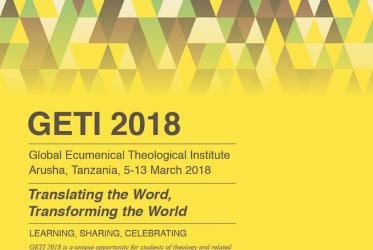Displaying 1 - 20 of 20
Churches respond to Malawi cyclone disaster
29 March 2023
Theological education in Africa promotes social transformation
03 November 2022
African church leaders train in leadership, diakonia and development
12 November 2021
African youth takes stand at first ever WCC Eco-School
03 August 2017
Applications open for WCC Eco-School
10 May 2017
WCC conference explores ecological injustice in Uganda
21 April 2016
Pilgrimage of justice and peace gives vision for WCC programmes
22 November 2014
Letters to the future: Eco-justice visions in South Africa
13 December 2012














